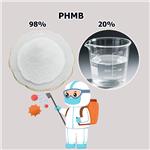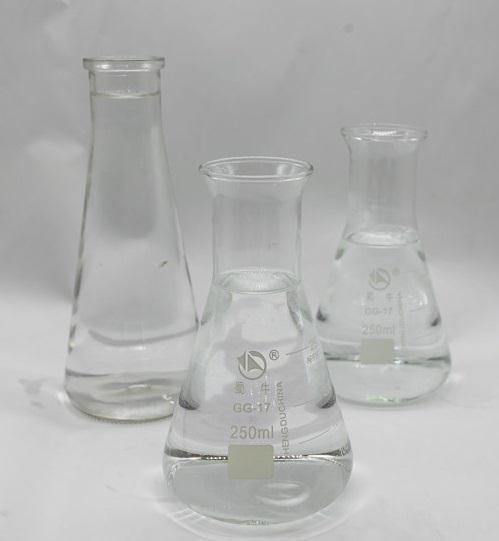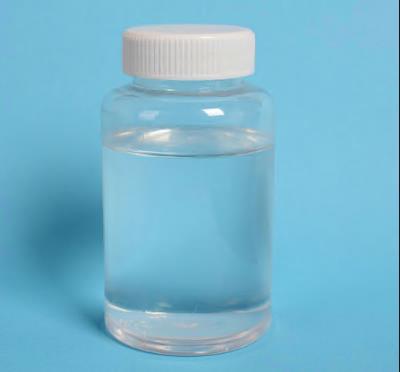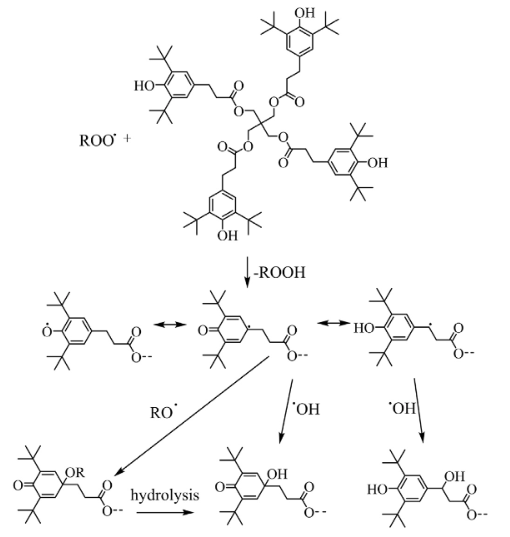Poly(hexamethylenebiguanide)hydrochloride: The double-edged sword effect of highly effective antimicrobials
Introduction
In the field of antimicrobial research and application, Poly(hexamethylenebiguanide)hydrochloride(PHMB) has become the focus of attention because of its unique broad-spectrum antibacterial activity, high efficiency, and stability. However, with the deepening ofPoly(hexamethylenebiguanide)hydrochloride the research, the potential shortcomings of MPHB have gradually emerged, making it show a double-edged sword effect in practical application. In this paper, the characteristics, applications, potential disadvantages, and prospects of it will be reviewed to provide a reference for the research and application in related fields.

Property
As a highly effective, broad-spectrum antimicrobial agent,Poly(hexamethylenebiguanide)hydrochloride many unique properties. First of all, it is colorless, odorless, and easily dissolved in cold and hot water, which makes it very convenient in practical applications. Secondly, it can kill bacteria quickly, which can rapidly reduce the number of bacteria in a short time to achieve the effect of disinfection and sterilization. In addition, due to its good stability, its antibacterial activity is maintained over a wide range of pH and temperature.
In addition to the above features, Poly(hexamethylenebiguanide)hydrochloride has several other advantages. For example, it can form a layer of cationic bacteriostasis on the surface of the item for a long time, thus extending the duration of disinfection. In addition, it is lowly toxic to mammals and has no side effects on the characteristics of food, so it is also safe and reliable in food, medicine, and other fields.1
Applications
Poly(hexamethylenebiguanide)hydrochloride is widely used in many fields. In the medical and health field, it can be used for disinfection of medical instruments, cleaning the public environment, and skin disinfection before surgery. In the field of food processing, it can be used for the disinfection of equipment and surfaces to ensure the hygiene and safety of food. In the field of home and fabric care, it can be used in cleaning products such as laundry detergent and hand sanitizer to kill bacteria and fungi and keep the home environment clean and sanitary.2
In addition, Poly(hexamethylenebiguanide)hydrochloride has also been applied in, aquaculture, agricultural cultivation, and other fields. In the field of water treatment, it is used to kill bacteria and viruses in water and improve water quality. In the field of aquaculture, it is used for disinfection of aquaculture ponds and equipment to prevent the spread of diseases. In the field of agricultural cultivation, it is used to disinfect soil and seeds to reduce the occurrence of diseases.3
Potential disadvantages
Although poly(hexamethylenebiguanide)hydrochloride has many advantages and a wide range of applications, it also has some potential disadvantages. First of all, at high concentrations, it may cause irritation and burns to the skin, causing redness, pain, and other adverse reactions. Therefore, it is necessary to strictly control the concentration and contact time when in use to avoid harm to the human body.
Second, long-term use of Poly(hexamethylenebiguanide)hydrochloride may lead to drug resistance problems in bacteria. Due to its bactericidal mechanism achieved by destroying the cell membrane structure of bacteria, long-term use may lead to adaptive mutations in bacteria, thereby reducing its bactericidal effectiveness. In addition, it may also have a certain impact on the environment, and it is necessary to pay attention to environmental protection issues during use.4
Future Outlook
Although has some potential shortcomings, Poly(hexamethylenebiguanide)hydrochloride still has broad application prospects in many fields as an efficient and broad-spectrum antimicrobial agent. To overcome its shortcomings and improve its application effect in various fields, the future can be studied and explored from the following aspects:
1.Development of new derivatives
By changing the molecular structure or introducing new functional groups, derivatives with better bactericidal effects and lower toxicity can be developed. These derivatives can have stronger antibacterial activity, lower irritability, and better biocompatibility, making them safer and more reliable in practical applications.
2. In-depth study of the mechanism of action
Through in-depth study of the bactericidal mechanism and the way of action, can provide more scientific guidance for its application in various fields. For example, the damage effect of it on bacterial cell membranes and its influence on bacterial metabolism can be studied, to provide more accurate guidance for its application in medical, food, and other fields.
3. Strengthen environmental protection research
Pay attention to environmental protection issues when using to avoid pollution to the environment. The degradation pathway and the impact of degradation products on the environment can be explored, to provide a scientific basis for its application in the field of environmental protection.
Conclusion
Poly(hexamethylenebiguanide)hydrochloride, as a high-efficiency, broad-spectrum antimicrobial agent, has a wide application prospect in many fields. However, its potential shortcomings also need our attention. In the future, we need to overcome its shortcomings and improve its application effect in various fields through in-depth research on the mechanism of action, the development of new derivatives, the strengthening of its environmental protection research, and the expansion of its application fields.5
References:
[1] WEI D, MA Q, GUAN Y, et al. Structural characterization and antibacterial activity of oligoguanidine (polyhexamethylene guanidine hydrochloride)[C]//44 1. 2009: 37-43. DOI:10.1016/J.MSEC.2009.02.005.[2] MARIA SWIONTEK BRZEZINSKA. Antimicrobial Activity of Polyhexamethylene Guanidine Derivatives Introduced into Polycaprolactone[J]. Journal of Polymers and the Environment, 2017, 26 2. DOI:10.1007/s10924-017-0974-9.
[3] FERNANDA GOSUEN GON?ALVES DIAS . Evaluation of the antiseptic and wound healing potential of polyhexamethylene guanidine hydrochloride as well as its toxic effects[J]. European Journal of Pharmaceutical Sciences, 2021, 160. DOI:10.1016/j.ejps.2021.105739.
[4] HYEMIN CHOI D G L Keuk Jun Kim. Antifungal activity of the cationic antimicrobial polymer-polyhexamethylene guanidine hydrochloride and its mode of action[J]. Fungal biology, 2017, 121 1: 1-102. DOI:10.1016/j.funbio.2016.09.001.
[5] WEI DING. Development of non-leaching and eco-friendly polyhexamethylene guanidine hydrochloride based antimicrobial waterborne polyacrylates[J]. Pigment & Resin Technology, 2017, 46 1: 458-468. DOI:10.1108/PRT-03-2017-0023.
Related articles And Qustion
See also
Lastest Price from Poly(hexamethylenebiguanide)hydrochloride manufacturers

US $0.00-0.00/kg2025-05-08
- CAS:
- 32289-58-0
- Min. Order:
- 1kg
- Purity:
- 99%
- Supply Ability:
- 20MT

US $10.00/kg2025-04-21
- CAS:
- 32289-58-0
- Min. Order:
- 1kg
- Purity:
- 99.5%
- Supply Ability:
- 100 TON




